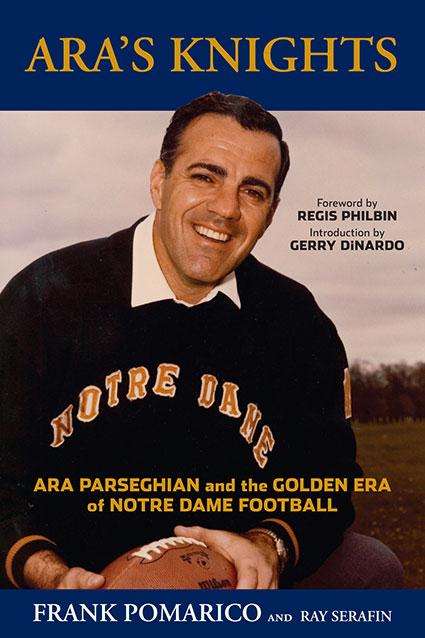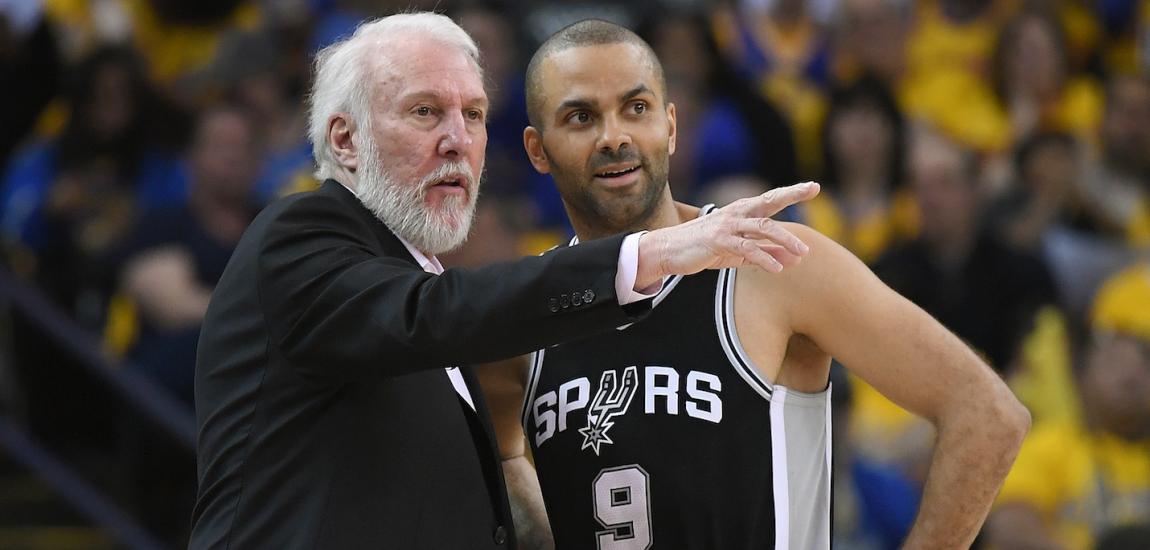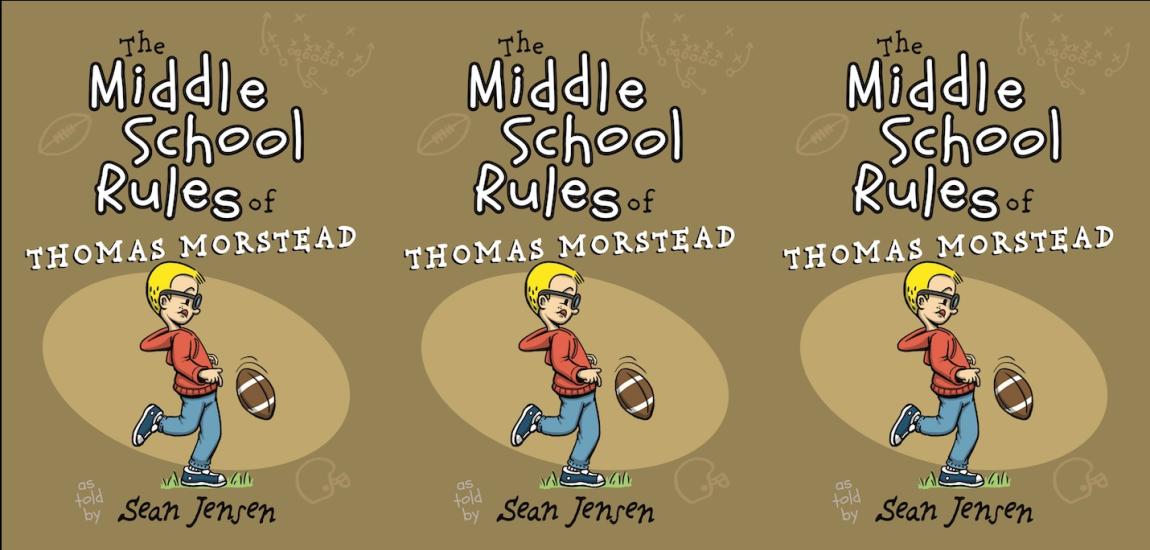Before he came to Notre Dame, Ara Parseghian coached a Northwestern team that beat the Irish four years in a row. Notre Dame president Father Theodore Hesburgh's solution was to hire Parseghian. In Parseghian's 11 seasons with the Irish, Notre Dame won two national championships (1966 and 1973) while compiling a .836 winning percentage. Parseghian was 94 when he died Wednesday (August 2, 2017). Frank Pomarico, an offensive lineman and a co-captain in 1973, wrote a memoir in 2015, Ara's Knights: Ara Parseghian and the Golden Age of Notre Dame Football. Here is an excerpt:
Playing for Ara Parseghian at Notre Dame was like being a knight in King Arthur's court at Camelot. I felt like I was part of a special group, playing for an exceptional leader. Like Camelot, the Era of Ara would not last forever, but it would always stand out as an extraordinary time. In writing this book, I interviewed dozens of Ara Parseghian's former players and assistant coaches in order to complement my own experiences and get a well-rounded view of the man, as well as to gain their insights on games, the Notre Dame football program, and campus life. I talked with All-Americans as well as with reserves who rarely got into games. Every single one was eager to talk about Ara's extraordinary leadership qualities and what they learned from him and his dedicated assistants.
Certain words came up again and again when former players and coaches talked about Ara's character: Intense. Disciplined. Intelligent. Prepared. Fair. Loyal. Charismatic. These traits inspired unswerving allegiance to Ara, and to each other. Ara's presence was a huge part of my own Notre Dame experience. His influence continued to shape my life long after my football playing days ended. And the men I talked with shared the same perspective on how he had changed their lives for the better.
I knew I was fortunate to be in a unique situation and that I had a responsibility not only to be a football player, but also to be an ambassador for the school. Duty and service were part of the equation. You should dedicate yourself to doing your job well, not because it would bring you applause, but because it is the right thing to do.
Under Ara, the lessons of the football field were really a first-rate education in how to live a life in which you would make a difference -- to your team, your family, your community, and, eventually, to your society. He was concerned with more than just developing football talent. He was a true players coach.
With his wide-ranging intelligence, organizational skill, and charisma, he could have succeeded in business or politics. Given his power to persuade, he could have been an excellent salesman. Instead, he became a legendary coach who resurrected the fortunes of a storied football program that had fallen on lean times.
Ara's 11 seasons at Notre Dame -- 1964 to 1974 -- coincided with one of the most tumultuous times in the history of American college life. The civil rights movement, the Vietnam War, Watergate -- these were events that rocked the world of student-athletes, and indeed all citizens. Unlike some coaches, Ara did not discourage his players from expressing their own views about the wider world. He understood that life was about more than football, but he demanded total dedication during the time set aside for preparation and playing the game.
Coach Parseghian put us in the best position to succeed -- and achieve at a level we never realized was possible. He grasped that success depended equally on the strategic and the human elements. He was open to hearing the opinions of others but unafraid to pull the trigger and take responsibility for his decisions.
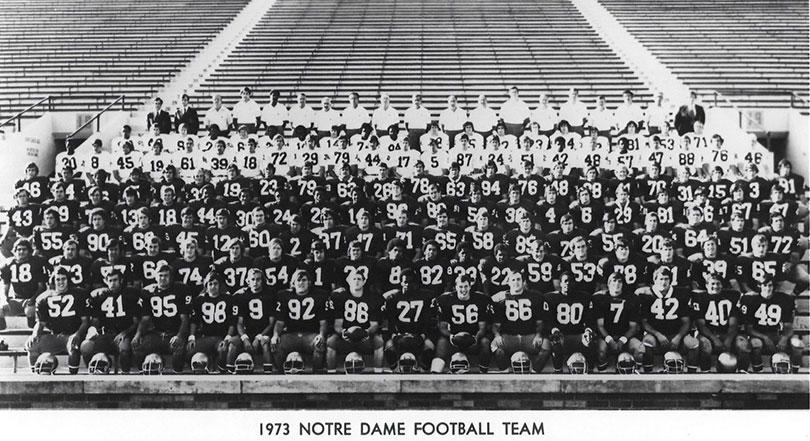
His plan was to work us hard and develop great pride. I liken it to what my father, John Pomarico, told me about his experience with the Marine Corps. He said that the pride that marines developed at boot camp in Parris Island was so strong that there wasn't anything they couldn't accomplish as a group or an individual. Ara felt that through an effort similar to the Marine Corps boot camp we would became so tight and focused that the betterment of the program was at the top of our priority list. This is what would separate us from other teams. Some of our opponents had better talent, but few had the same kind of commitment that Ara's teams had. He preached that we would have "no breaking point," that we would have faith that we could overcome any circumstance.
Looking out for one another was a high priority. If someone wasn't doing something right, we all had a responsibility to let that person know about it. If a player needed encouragement, we needed to be there for him. Ara's focus was the team, but he also was concerned about the individual player. He felt that our parents had entrusted their sons to him for four years to play football while getting an education and he was responsible to make both things happen.
He placed a high value on loyalty. Ara was extremely fair, and whenever someone is fair he gets back loyalty many times over. Fairness was something that Ara took very seriously. Every night after dinner and meetings, the head coach and his staff would talk about each player, reviewing how the individual did that day and discussing anything that had been noticed in the player's performance or life, whether positive or negative. Players knew that their efforts would be noticed, and rewarded with playing time if warranted.
"To me, Ara deserved all my blood, all my sweat, all my tears, because he cared about me, and I knew that from day one," said Eric Penick, a running back who scored one of the most memorable touchdowns in Notre Dame history. "He cared for each and every one of us. That's who he was. And he picked coaches who cared about us, too."
College athletes face plenty of potential distractions -- drugs, alcohol, and the actions and opinions of family, friends, and others. It's very easy to think that accepting someone's invitation to go out and have a beer or get high on pot is harmless, but Ara made the case that in reality it would weaken the program. Listening to anyone who said you should be playing instead of someone else was a recipe for dissension. Our team was a fortress, Ara said, and if we allowed cracks in the wall, the fortress would become weaker and would eventually crumble. We are strongest when everyone is on board, he reminded us.
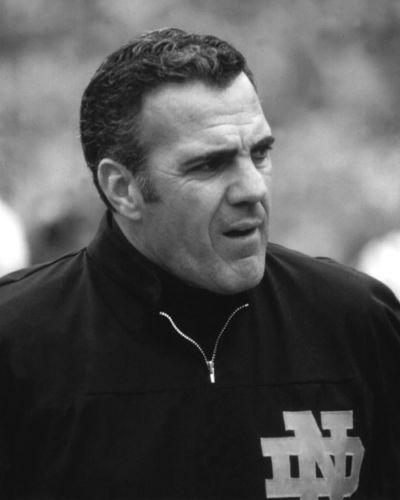
Ara's explanation of the program and his expectations of us -- physically, mentally, and academically -- gave us an understanding of how strong our commitment had to be. If we weren't driven like he and the other coaches were, we were in the wrong place. College football was physically and mentally demanding, and if we were not in on both ends, we were going to get beat up.
Coach Parseghian challenged us to show our hunger to play and be successful. That was easy for me because not only was I obsessed with playing for the man, but he also was totally clear on what he and the other coaches expected: work hard, find out everything you need to do to be successful, be fair to coaches and teammates, look out for each other like family, and stay focused on the goals of the team. Ara vowed to never criticize a player to the media, and he expected his players to do the same. This family-like focus created strong bonds.
We won a lot of football games, but there were some gut-wrenching losses, too. Ara instilled in us the need for resilience. The measure of a person was not whether he got knocked down, but rather if he had the character to get back up. And it was out of the ashes of a humiliating defeat that our team found the iron determination to rise to the greatest height.
Ara had an unbelievable ability to hold your attention when he delivered his message. I remember after one such tremendous talk that Dan Morrin, my teammate and roommate, said he was ready to run through a wall.
When Ara spoke to us at the end of practice, he often relayed inspirational words. For example, he liked to cite this quote from Horace Greeley: "Fame is a vapor, popularity an accident, riches take wings. Only one thing endures and that is character." Even though we might be worn out physically, we inevitably left the field feeling good about ourselves and being where we were.
We were grateful to be around a head coach who could put things in perspective, imparting lessons not only in blocking and tackling but also in life itself.
"We were the luckiest people in the world to have Ara be a part of our life," said quarterback Joe Theismann. "Ara had a great pulse on everything and he wasn't going to allow you not to be great. He expected it of himself. Everything we became is exactly what he expected of himself. And as much as he infuenced our lives, I believe every one of us is a reflection of his."
"In all my life, I have met few people that exuded such class and dignity as Ara," said offensive lineman Steve Quehl, who went on to achieve success as a business leader in the technology area. "He wore it like a well-tailored suit. It hung naturally on him and it raised the level of it in all of us."
Ara was royalty, not because he was born into a family of kings, but because he became a great leader, the kind who inspired the best in those Knights who followed him.
-- Excerpted by permission from Ara's Knights: Ara Parseghian and the Golden Age of Notre Dame Football by Frank Pomarico and Ray Serafin. Copyright (c) 2015. Published by Triumph Books. Available for purchase from the publisher, Amazon, Barnes & Noble and iTunes.


